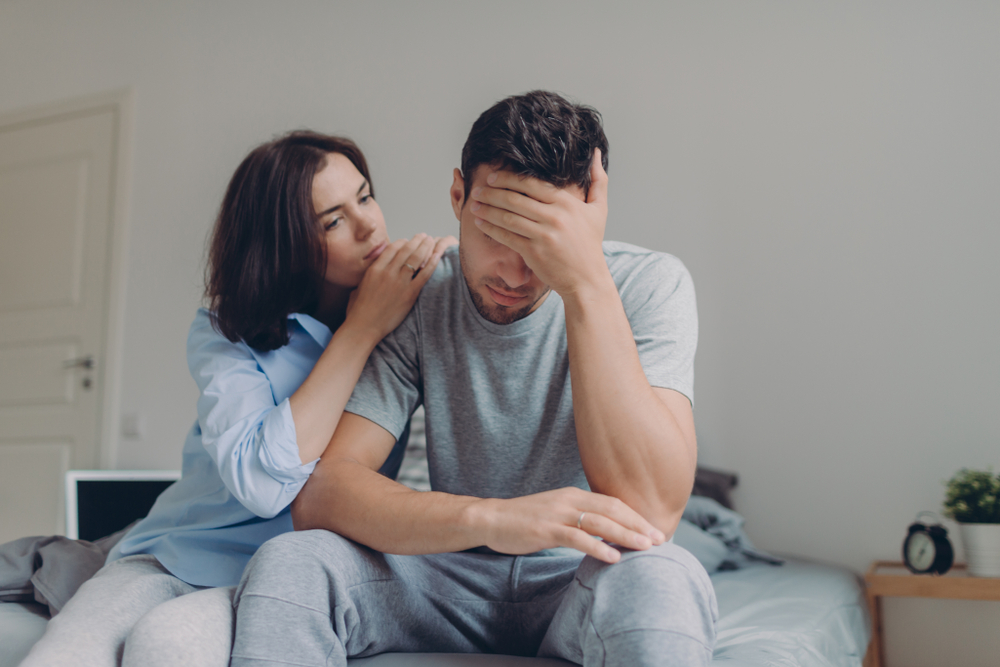If you had to count how many times you say “sorry” during the course of one day, would you be embarrassed because the number’s quite high? Are you blurting out apologies like you’re on autopilot or because you really mean them and have a good reason for them? If it’s the former, you’re probably over-apologizing and it won’t be long before it starts killing your confidence.
1. You’re a knee-jerk apologizer.

Something happens and you say “sorry!” even though you don’t know what you’re apologizing for. So, if you’re washing dishes in the sink and your partner comes to use the tap, you might apologize even though it’s a knee-jerk reaction and you have nothing to apologize for. You’re making yourself seem weak or like you’re expecting yourself to do something wrong!
2. You’re sorry for things other people have done.

If someone spills coffee on your desk by accident and apologizes, you might also say, “Sorry!” Ditto for when someone bumps their cart into you at the supermarket. What are you even doing? You might think that you should preempt their apology with yours, but it comes across like you’re trying to avoid conflict due to a lack of confidence.
3. You’re sorry for things that aren’t anyone’s fault.

If your partner’s angry because the home WiFi isn’t working or your friend’s upset because FaceTime keeps freezing, you’re quick to apologize for it. No one was expecting you to say sorry, so why are you saying it? You’re showing your lack of confidence by taking responsibility for others’ reactions to things that are not in anyone’s control.
4. You apologize when someone hurts themselves.

Your friend burns her finger on the gas stove or gets her heart broken by her toxic partner yet again. You say “I’m so sorry.” Huh? You might be using an apology because you’re not sure what else to say, but it comes across as insincere. Instead, speak to them about what happened to show genuine interest.
5. You apologize if you upset someone with solicited advice.

Your friend asked for your advice and you were gentle but firm in what you had to tell them. They got angry, so you apologized. Wow, for real? Just because you feel like you did something wrong, you weren’t setting out to hurt anyone. Again, you can’t be responsible for other people’s irrational feelings according to The Albert Ellis Institute.
6. You’re always apologizing for who you are.

You should never feel the need to apologize for who you are. Just because your fashion choices/opinions/feelings make other people feel the need to comment about it, that’s their problem! You don’t have to say sorry or feel sorry. Have the self-confidence to be yourself and work through your insecurities.
7. You apologize for your beliefs.

If you have a belief that’s different from your partner’s, why should you have to say sorry? You should never compromise on your beliefs and values. Rather have the confidence to agree to disagree. If your partner’s not open-minded enough to engage in conversation without it becoming a fight, they should be saying sorry for being a jerk.
8. You say sorry if people can’t understand you.

You’re talking to your partner or friend and they totally misunderstand what you’re trying to say. You might apologize, but why take ownership of how they weren’t listening or got the wrong end of the stick? By doing this, you’re basically showing them that you have no self-respect.
9. You’re sorry for not replying to messages fast enough.

Everyone has different texting styles. You might not feel the need to reply to someone’s text as soon as they send it. If they express anger about it, you don’t have to say sorry. During the early stages of dating, it’s best to communicate about how much you text and why (here are some other dos and don’ts of texting according to clinical psychologist, Suzanne Lachmann). If you try too hard to please them, you’re coming across as a human doormat.
10. You’re sorry when you’re embarrassed.

You embarrass yourself, such as by puking after drinking all night or double-texting a new person you’re dating. Hey, it happens and you probably feel cringey and embarrassed. Totally cool. But, unless you’ve hurt someone directly, you don’t have to apologize for being embarrassed.
11. You apologize when asking for a favor.

You need to ask your friend for help, so you start out by saying how sorry you are for asking them. You don’t have to do this! Instead, just go ahead and ask them for what you need. If you apologize so much, you seem like a doormat without any confidence, and this can make them less likely to want to help you ’cause you’re desperate.
12. You don’t know why you’re sorry.

You sometimes apologize to people without actually knowing why you’re sorry! This is a red flag that you’re an over-apologizer. People might also ask you why you’re sorry because it’s like you’re a broken record. You’re going through the motions without being true to yourself and what you feel.
13. You’re sorry when people ask you not to apologize.

If you’re an over-apologizer, your loved ones might tell you that you don’t need to apologize for something. Instead of just accepting it, you apologize for having apologized! Okay, now you’re going into a spiral and it’s making you seem like you’ve got no backbone. It doesn’t make a good impression.
14. You apologize when your jokes don’t land.

If you made a joke that wasn’t offensive to anyone, but your friends didn’t laugh, you don’t have to apologize. Hey, maybe you have different senses of humor, and that’s okay. You don’t have to act like you did something wrong because you didn’t.
15. You’re sorry when setting healthy boundaries.

Everyone needs healthy boundaries in relationships. You shouldn’t feel bad for setting some of your own. If your partner doesn’t respect them, that actually says a lot of negative stuff about them. Don’t apologize for your boundaries. Have some self-respect and self-love. If not, how can you expect others to treat you well?








